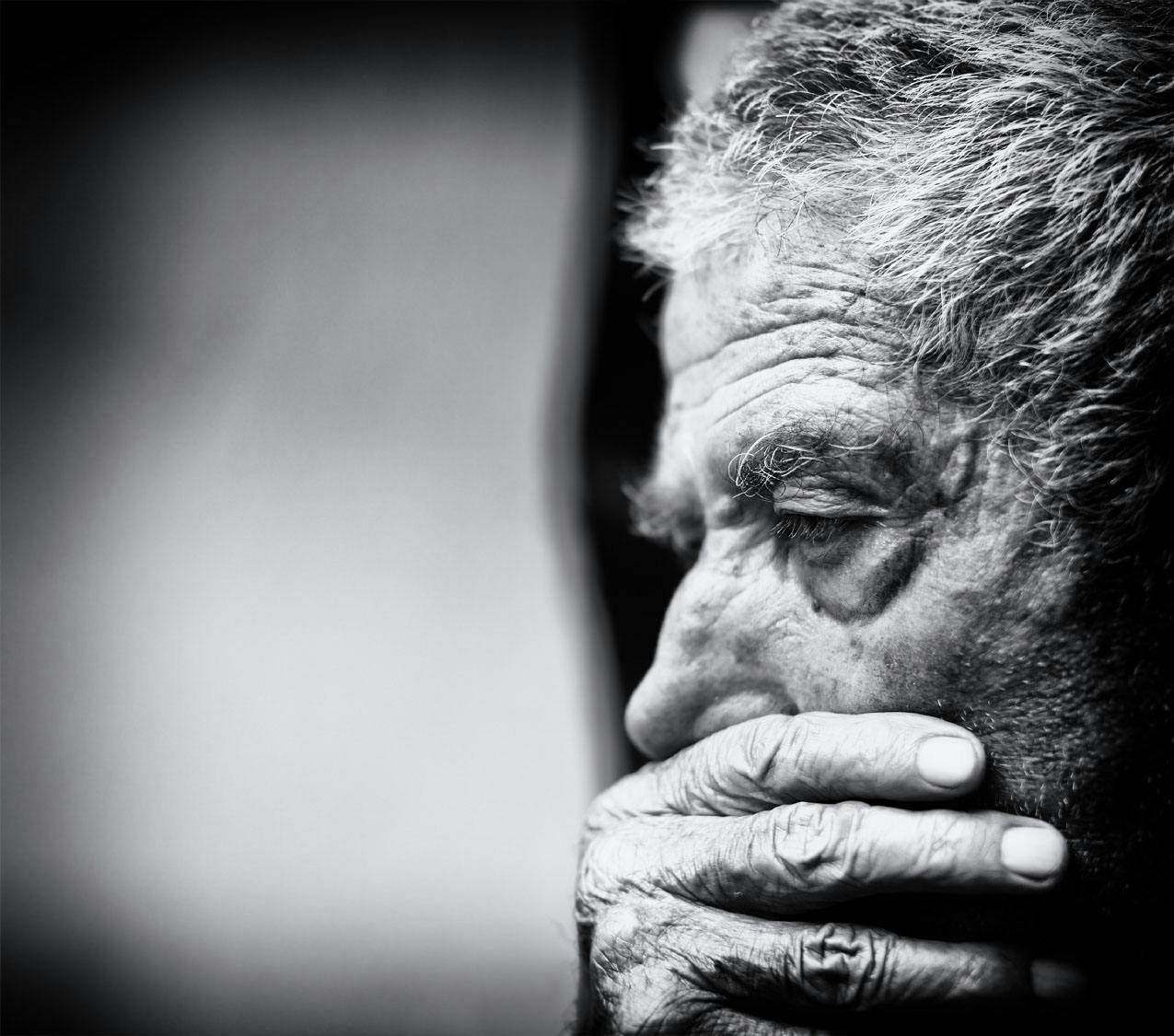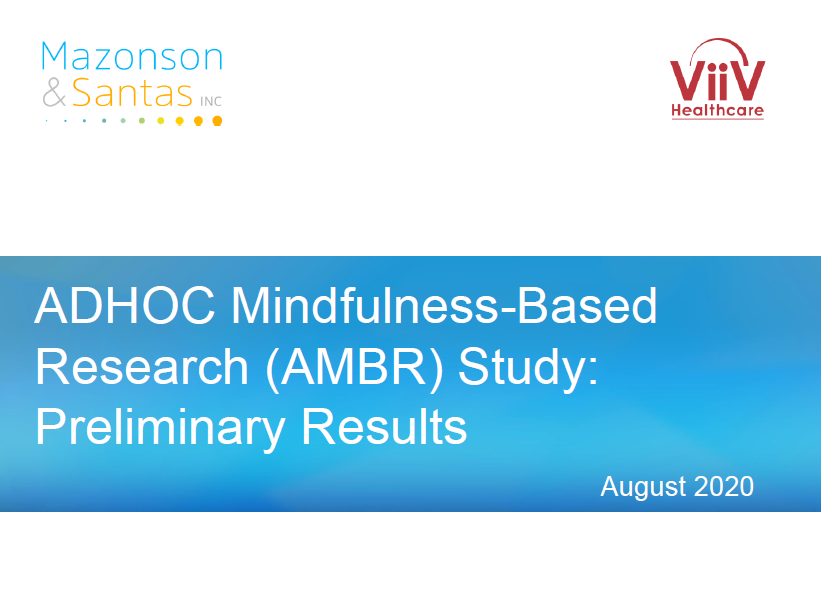ADHOC MINDFULNESS-BASED RESEARCH (AMBR) PROJECT
Background
Older (age 50+) people living with HIV (PLHIV) may experience elevated levels of depression, anxiety, and loneliness. Online mindfulness lessons have the potential to ameliorate these problems and enhance access, especially during the COVID-19 pandemic. The objective of this randomized controlled trial was to determine the effectiveness of online mindfulness lessons in reducing feelings of depression, anxiety, and loneliness among older PLHIV.

Methods
The study was conducted online between May and August 2020. Individuals with any degree of self-reported loneliness at baseline were eligible to participate. Outcomes of interest included depression, measured using the Center for Epidemiologic Studies Depression Scale (CES-D-10, range 0-30, higher scores indicating worse depression), anxiety using the Generalized Anxiety Disorder (GAD-7, range 1-21, higher scores indicating worse anxiety), and loneliness using both the Three-item Loneliness Scale (3IL, range 3-9, higher scores indicating more loneliness) and a Daily Diary that asked “How lonely do you feel today?” on a 7-point scale, with higher scores indicating more loneliness.
Results
Of 214 participants who were randomized, the mean (SD) age was 60.4 (5.9) years, 89% were male, 69% were white, and 74% were gay or lesbian. At the end of the 25-day intervention, compared to the control group (N = 103), the intervention group (N = 99) demonstrated reduced levels of depression (mean [SD] score, 10.2 [5.8] vs. 12.8 [6.9]; p < 0.01) and anxiety (5.2 [4.3] vs. 6.7 [5.0]; p = 0.03). Among the subset of participants with elevated baseline depression scores (defined as CES-D-10 ≥ 8), the between-group improvement in depression scores was greater (11.8 [5.6] vs. 16.0 [5.8]; p < 0.01). Similarly, among the subset of participants with elevated baseline anxiety scores (defined as GAD-7 ≥ 5), the between-group improvement in anxiety scores was greater (6.2 [4.2] vs. 8.6 [4.5]; p < 0.01). While loneliness did not improve significantly for the overall intervention group, it did improve significantly using the Daily Diary for those with at least moderate loneliness at baseline (3.0 [1.4] vs. 3.7 [1.5]; p < 0.01).
Conclusions
This randomized controlled trial is the first to show that a series of brief, online mindfulness audio lessons improves mental health outcomes among older PLHIV who report some degree of loneliness. For many patients, this intervention may offer emotional relief, even in the face of the COVID-19 pandemic.
Collaborators
Dr Peter Manzonson, Manzonson & Santas, Inc.
Setting
Online
Location
U.S.A.
Duration
May 2020 – Dec 2020
Category
Ageing/Health Related Quality of Life/Retention in Care/ Adherence
Key study materials
RELATED STUDIES
USA
The RISE study was a cross-sectional survey designed to obtain an up-to-date understanding of the impact living with HIV has on patients’ lives in the US.
SOUTH KOREA
This study demonstrated that nurse-delivered CBT for people living with HIV focusing upon adherence and depression, has the potential to be an effective and acceptable means of improving depressive symptoms, ART adherence, quality of life, and stigma for PLHIV
Study focus areas
Our implementation research projects have a global reach and focus on improving the HIV prevention and care continuum.

NP-GBL-HVX-WCNT-220049 October 2023
Adverse events should be reported. Reporting forms and information can be found at yellowcard.mhra.gov.uk or search for MHRA Yellowcard in the Google Play or Apple App store. Adverse events should also be reported to GlaxoSmithKline on 0800 221441.
If you are from outside the UK, you can report adverse events to GSK/ViiV by selecting your region and market, here.

